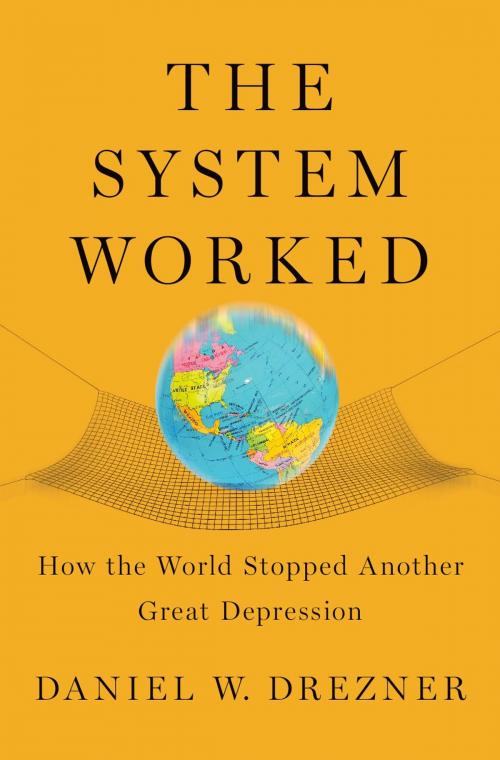The System Worked
How the World Stopped Another Great Depression
Nonfiction, Social & Cultural Studies, Political Science, International, Business & Finance| Author: | Daniel W. Drezner | ISBN: | 9780199912124 |
| Publisher: | Oxford University Press | Publication: | May 2, 2014 |
| Imprint: | Oxford University Press | Language: | English |
| Author: | Daniel W. Drezner |
| ISBN: | 9780199912124 |
| Publisher: | Oxford University Press |
| Publication: | May 2, 2014 |
| Imprint: | Oxford University Press |
| Language: | English |
International institutions, from the International Monetary Fund to the International Olympic Committee, are perceived as bastions of sclerotic mediocrity at best and outright corruption at worst, and this perception is generally not far off the mark. In the wake of the 2008 financial crash, Daniel W. Drezner, like so many others, looked at the smoking ruins of the global economy and wondered why global economic governance structure had failed so spectacularly, and what could be done to reform them in the future. But then a funny thing happened. As he surveyed their actions in the wake of the crash, he realized that the evidence pointed to the exact opposite conclusion: global economic governance had succeeded. In The System Worked, Drezner, a renowned political scientist and international relations expert, contends that despite the massive scale and reverberations of this latest crisis (larger, arguably, than those that precipitated the Great Depression), the global economy has bounced back remarkably well. Examining the major resuscitation efforts by the G-20 IMF, WTO, and other institutions, he shows that, thanks to the efforts of central bankers and other policymakers, the international response was sufficiently coordinated to prevent the crisis from becoming a full-fledged depression. Yet the narrative about the failure of multilateral economic institutions persists, both because the Great Recession affected powerful nations whose governments managed their own economies poorly, and because the most influential policy analysts who write the books and articles on the crisis hail from those nations. Nevertheless, Drezner argues, while it's true that the global economy is still fragile, these institutions survived the "stress test" of the financial crisis, and may have even become more resilient and valuable in the process. Bucking the conventional wisdom about the new "G-Zero World," Drezner rehabilitates the image of the much-maligned international institutions and demolishes some of the most dangerous myths about the financial crisis. The System Worked is a vital contribution to our understanding of an area where the stakes could not be higher.
International institutions, from the International Monetary Fund to the International Olympic Committee, are perceived as bastions of sclerotic mediocrity at best and outright corruption at worst, and this perception is generally not far off the mark. In the wake of the 2008 financial crash, Daniel W. Drezner, like so many others, looked at the smoking ruins of the global economy and wondered why global economic governance structure had failed so spectacularly, and what could be done to reform them in the future. But then a funny thing happened. As he surveyed their actions in the wake of the crash, he realized that the evidence pointed to the exact opposite conclusion: global economic governance had succeeded. In The System Worked, Drezner, a renowned political scientist and international relations expert, contends that despite the massive scale and reverberations of this latest crisis (larger, arguably, than those that precipitated the Great Depression), the global economy has bounced back remarkably well. Examining the major resuscitation efforts by the G-20 IMF, WTO, and other institutions, he shows that, thanks to the efforts of central bankers and other policymakers, the international response was sufficiently coordinated to prevent the crisis from becoming a full-fledged depression. Yet the narrative about the failure of multilateral economic institutions persists, both because the Great Recession affected powerful nations whose governments managed their own economies poorly, and because the most influential policy analysts who write the books and articles on the crisis hail from those nations. Nevertheless, Drezner argues, while it's true that the global economy is still fragile, these institutions survived the "stress test" of the financial crisis, and may have even become more resilient and valuable in the process. Bucking the conventional wisdom about the new "G-Zero World," Drezner rehabilitates the image of the much-maligned international institutions and demolishes some of the most dangerous myths about the financial crisis. The System Worked is a vital contribution to our understanding of an area where the stakes could not be higher.















